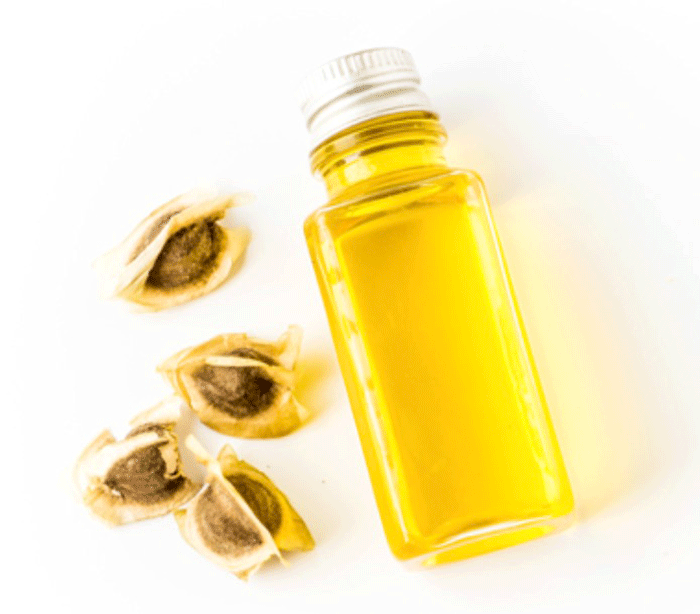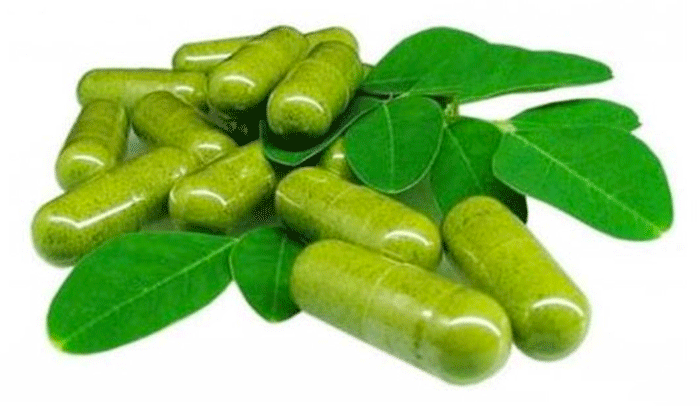Seed Oil: Moringa trees produce large quantities of oil from seeds within pods that grow 2X a year in Nigeria. The oil content of a de-hulled seed is approximately 42 %. It has been traditionally used as a vegetable cooking oil (equivalent to olive oil), a cosmetics base, a food ingredient, and even a medicine. Moringa oil is known for its skin and hair rejuvenating properties, due in part to its high level of oleic acid (70 %, compared to 40% for most vegetable oils) It provides deep skin moisturization and nourishment, reducing fine lines, wrinkles, and blemishes. In hair care, it strengthens the hair shaft, reducing breakage and split ends while providing shine. It contains significant quantities of vitamins A, C and E plus naturally occurring anti-inflammatory compounds. Its combination of unsaturated, saturated and polyunsaturated fatty acids makes it very stable, with a shelf life of up to five years.
Nutraceuticals: There are over 90 distinct vitamins and minerals in moringa oleifera, each with distinct benefits.These can lower blood pressure, sustain energy and alertness, improve hormonal balance and digestive health, enhance mood stabilization (via tryptophan), reduce appetite and increase metabolic rate (it has been used as a weight loss product). Its high level of antioxidants promotes cell regeneration and immunocompetence (via anti-inflammatories like zeatin, quercetin, and beta-sistosterol. Moringa polyphenols protect the liver against oxidative stress, toxicity, and fibrosis it has antibacterial and anti-fungal properties, and can enhance wound-healiing by reducing clotting time. Some moringa components (such as glucosinolate and cationic protein), have shown promise in lipid balance and others in glucose regulation (via chlorogenic acid and reduction in plasma insulin and immunoglobulin; diabetes is among some 600 conditions for which “the miracle tree” has been used in folk medicine traditions worldwide.)
Tea: Moringa tea is consumed regularly by people in India and the Philippines for nutrition, clarity, and general wellbeing. Moringa leaf tea contains the antioxidants quercetin and kaempferol, and is equivalent to matcha green tea in delivering flavonoids, though moringa has more vitamin A and C. (Matcha green tea contains high doses of epigallocatechin gallate or EGCG, which protects brain health, so formulating both together can produce synergistic benefits. Leaves that are dried slowly to preserve nutrients make the most beneficial teas.
Baked Goods: This Nigerian moringa cake illustrates how moringa flour can replace a portion of the wheat in baking recipes, adding gluten-free protein, vitamins and minerals to local diets. Many formulated products can get a nutritional boost: bread, school snacks, crackers and chips, pasta, soups and sauces.





